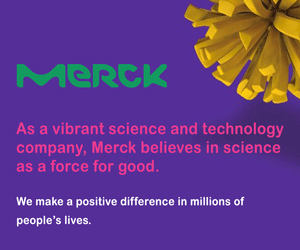1MG FlippingBooks
New Title
By Mark H.B. Radford, Executive Director & CEO - Queensland Eye Institute
New Title

Queensland state governments have championed life sciences, biotechnology and medical sciences for more than 30 years. The Smart State Strategy of the late 1990s and 2000s led to the development of large scale life science research infrastructure and capability. Today there are 130 biotechnology research centres in Queensland, given prominence through a searchable register maintained by the Queensland Government’s Department of Science.
In 2015, the State Government launched Advance Queensland, which includes the Office of Queensland Chief Entrepreneur, to support and fund innovation. That office recently announced its Innovation for a Future Economy 2022-2032 Roadmap, which highlights the urgency of ensuring Queensland’s research and collaborations are commercialised.
A strong foundation of research and innovation from local world class universities, combined with support from government, philanthropy and the private sector, has created a unique and exciting environment in Queensland for these three sectors.
Research and Commercialisation
Queensland’s research and development institutions are at the forefront of cutting-edge life science in fields such as genomics, bioinformatics, immunotherapy, and medical technology. The collaborative spirit among researchers, universities, and industry players has driven innovation and the translation of scientific discoveries into practical applications.
Several universal elements contribute to the successful commercialisation of medical research. These include clear communication of research findings, a focus on addressing unmet needs in the market, rigorous validation of product efficacy and safety, proactive engagement with regulatory bodies, strategic intellectual property management, and strong collaboration between academia and industry.
Queensland’s efforts to bridge the gap between research and commercialisation have yielded positive outcomes. Government support and initiatives aimed at promoting technology transfer and innovation have contributed to a thriving ecosystem of start-up medical and biotechnology companies conducive to commercialisation. Some of these initiatives have developed ground-breaking solutions for healthcare challenges.
Research Commercialisation and the role of Venture Capital
Venture capital (VC) plays a crucial role in the development and commercialisation of medical research. VC firms provide funding and expertise to start-ups, enabling them to scale their operations, refine their products, and enter the market. In Queensland, the availability of venture capital, especially for nascent research, has been instrumental in helping promising medical and biotechnology companies realise their potential.
However, the road to successful commercialisation through venture capital is not without challenges. Investors often seek a balance between risk and reward, and the unique complexities of medical research can lead to longer development timelines and uncertainties before the benefits from medical research are realised. The financial goals of venture capitalists do not always reconcile with the intrinsic value of medical research. Adjusting expectations around timelines associated with medical research requires a delicate balancing act.
Collaborating with researchers and universities is vital for successful commercialisation. Successful medical research commercialisation demands a diverse skill mix. This includes not only scientific expertise but also business acumen, regulatory knowledge, marketing skills, and the ability to navigate complex partnerships.
One of the biggest challenges for medical start-ups is harnessing the passion and drive of researchers without alienating them through the commercialisation process. All too often a dysfunctional relationship between investors, management and the researcher can lead to a loss of value in a start-up, as disenfranchised researchers stop contributing and commercialisation falters. Bridging the gap between the academic and business worlds requires effective communication, mutual understanding, and a willingness to navigate challenges together.
Historically Queensland has tended to create single or limited product start-up companies, which can be subject to high administration costs relative to returns, and less likely to deliver value to the company and the stakeholders, which in turn can discourage further investment. A portfolio approach to managing medical start-ups is preferable/more cost-efficient.
Finally, university commercialisation units need to abandon their understanding of success simply in terms of the ‘number of deals done’ and focus more on the outcomes of those deals.
Medical research commercialisation is pivotal to translating scientific discoveries into tangible commercial outcomes. By facilitating the transformation of research findings into market-ready products and services, Queensland can drive economic growth and improve healthcare outcomes simultaneously.
Overcoming our challenges
While the potential for success is immense, challenges to commercialising medical research remain. These challenges include managing the relationship between business and researchers, navigating regulatory hurdles, securing funding at various stages of development, protecting intellectual property, recruiting and retaining top talent, and effectively marketing products in a competitive landscape.
Queensland’s journey towards becoming a centre for life sciences, biotechnology, and medical sciences is marked by its research excellence, collaborative environment, and growing emphasis on commercialisation. To ensure ongoing development, stakeholders must continue to foster collaboration, support start-ups, attract venture capital, and address challenges collectively.
For Queensland to thrive in the life and medical sciences innovation space, it needs a bipartisan 20-year plan that focuses on infrastructure and, more importantly, what we put in that infrastructure. The sector needs appropriate research grants and long-term support, allowing researchers to focus on scientific goals, rather than short-term concerns of where their next grant or research position is coming from.
We need a clear articulation of state and national research priorities to focus research and commercialisation efforts in delivering on our innovation potential and capabilities.
Without these priorities or plan, we are in danger of losing a generation of researchers and being saddled with underutilised and even empty facilities. We risk becoming simply a research services state, a place to conduct clinical trials for others, rather than a place where innovation leads to meaningful, successful, and commercially practical applications.
The business of innovation and commercialisation needs to be treated in the same way we treat good scientific research.
As Stefan Thomke and Gary W. Loveman wrote in the May-June 2022 Harvard Business Review, “Senior management should take a scientific approach to making decisions. They should challenge assumptions and investigate anomalies by articulating testable hypotheses and conducting rigorous experiments that generate conclusive evidence.”
If we get this right, Queensland, and indeed Australia, will continue to be an innovative and commercially successful powerhouse for the translation of medical research into practical application, with everyone from researchers, institutions, government, investors and ultimately society as winners.
Acknowledgements:
The author wishes to thank Angela Bensted for her comments and feedback in the preparation of this manuscript.










